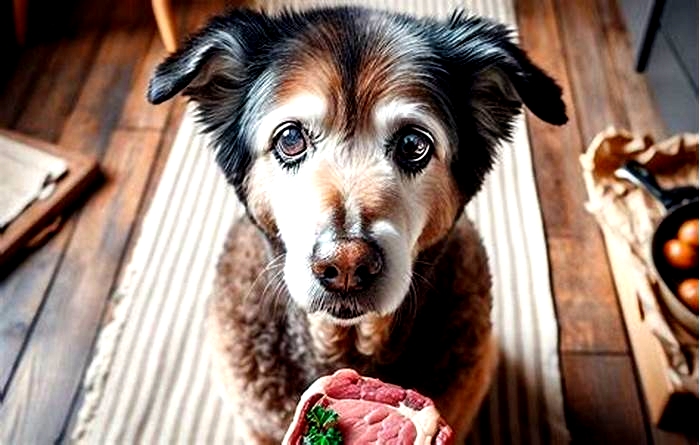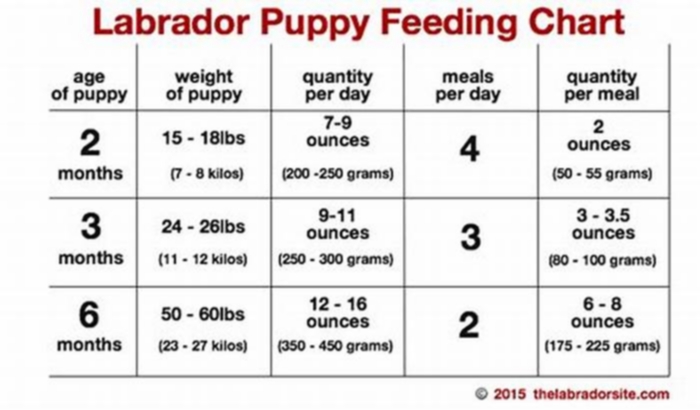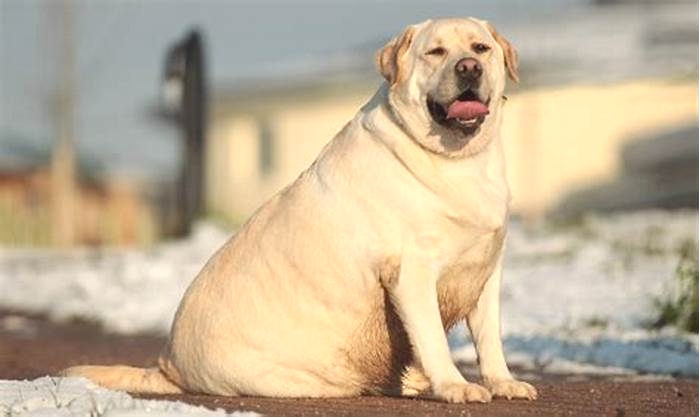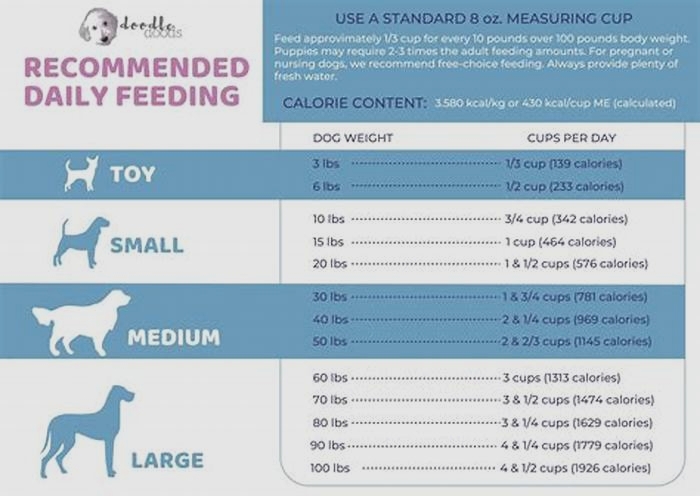What age is a Labrador classed as senior

When Is a Labrador Considered a Senior?
As a lab owner, you might wonder when a labrador is considered a senior. Watching them grow from puppies to adults is a great experience, and its hard to accept that they will be considered seniors one day. An excellent general indicator of big-breed dogs is the labrador retriever. They live for around 12 years on average.
Generally, a labrador is considered a senior when they are around 8 9 years old. However, there are signs that your Labrador is getting older, even if they still need to hit the 8-year mark. Keep an eye out for these signs that we will discuss in this post so that you can take the necessary precautions to ensure your furry friend stays healthy into their golden years.
Labrador Retriever Development

Everyone loves a good origin story. We love to hear about how things came to be, whether its the origins of our favorite breed of dog. So here is the Labradors development and growth cycle:
Newborn:
Labrador Retrievers are born deaf and blind, but they make up for it with their cute factor. At this stage in their lives, Labs depend largely on their mothers for survival. They will spend most of their time sleeping and eating, with the occasional bathroom break in between. During this time, Labs begin to develop their initial temperament; those born with a calm disposition are more likely to be calm adults, while those who are hyperactive as pups are more likely to be high-energy adults.
Puppyhood:
This is the stage where Labs really start to come into their own. At around eight weeks old, they will begin to open their eyes and ears and start exploring their surroundings. Puppyhood is also when they begin their formal training, whether its obedience or agility training. During this time, Labs really start to bond with their owners; those who have positive experiences during puppyhood are more likely to be well-adjusted adults.
Adulthood:
Labs reach adulthood around 1-2 years of age. At this point, they are fully grown both physically and mentally. They will have reached their final adult weight and developed the personality they will carry with them for the rest of their lives. During this stage, many Labs find their forever homes; those who were not adopted during puppyhood often end up being adopted by families looking for an adult dog.
Senior Years:
The senior years for a Lab begin around 8-9 years of age. During this time, Labs will slow down both physically and mentally. They may develop health problems such as arthritis or cardiovascular disease and need medication or adjust their diet accordingly.
Due to their declining health, many senior Labs are retired from their jobs (whether working as therapy dogs or serving as family pets). However, they can still enjoy a good quality of life if they receive the proper care from their owners.
Signs that a Labrador Considered a Senior

Here are a few signs that indicate your Lab is becoming a senior.
Sleeping More
If your once rambunctious pup is now spending most of its time napping, its a sure sign theyre getting up there in age. Just like humans, dogs need more rest to recover from day activities as they age. So, if you see your Lab is sleeping more, dont be too concerned its just part of the aging process.
Not As Energetic As They Used to Be
As dogs age, they naturally become less active and have less energy. So, if you find your Lab isnt as interested in playing fetch or going for walks as it used to be, its probably because theyre getting older and its bones and joints arent as strong as they used to be. However, that doesnt mean they dont still enjoy a good game of tug-of-war from time to time they just might not be able to keep up with you like they used to.
Decreased Appetite
One telltale sign that your Labrador is getting older is if its appetite has decreased. Just like with people, as Labs get older, their metabolisms begin to slow down, and they dont need to eat as much food as they did when they were younger. So, if you find your Lab leaving food in its bowl or turning up its nose at its favorite treats, its nothing to worry about theyre just not as ravenous as it used to be.
More Toilet Breaks
As Labs age, their bodily functions begin to move more slowly. So, if you see your pup needing more frequent trips outside to do its business, its probably because theyre getting older and the process isnt as efficient anymore. However, this doesnt mean your Lab cant still hold it.
The Coat Is Changing Color
This one is a little harder to notice, but if you look closely at your Labs fur, you might notice that its starting to gray around the edges. This is perfectly normal for older Labs and not something to worry about.
Grumpier Than Usual
This one might also be hard to notice since Labs are known for being friendly and good-natured creatures. However, if you find that your Lab is snapping at you or other pets more often, it could be a sign that theyre becoming a senior.
How Long a Labrador Retriever Lives Compared to Other Dogs
Labradors have a slightly longer life expectancy. On average, Labradors live between 10 and 12 years. This is compared to the average lifespan of other popular breeds like Golden Retrievers (10-12 years), German Shepherds (9-13 years), and Beagles (10-15 years).
Its important to remember that the age when a labrador considered a senior would vary depending on the breed and size of the animal. Smaller breeds tend to live longer than larger breeds, and some dogs may be considered seniors earlier than others. Its always best to consult your veterinarian about when to transition your Lab.
Common Health Problems for Senior Labrador
Just like human health deteriorates with age, so does the health of our beloved senior Labradors. As they age, they are more prone to developing certain health problems. This doesnt mean that every senior Labrador will get all these problems, but its essential to be aware of them. Here are the common health problems faced by senior Labradors.
Arthritis
Just like humans, Labradors can develop arthritis as they age. This is due to the deterioration of the cartilage in their joints. Symptoms of arthritis include stiffness, lameness, and pain. If you think your Labrador may have arthritis, take them to the vet for a checkup.
Tumors
Unfortunately, tumors are also common in senior Labradors. The chances of your dog developing a tumor increase with age. However, not all tumors are cancerous. If you see a lump on your dog, take them to the vet so that they can determine whether or not its cancerous.
Kidney Failure
One of the most serious health problems senior Labradors face is kidney failure. Kidney failure occurs when the kidneys can no longer efficiently filter toxins from the blood. Symptoms include increased thirst, increased urination, and weight loss. If you think your dog may have kidney failure, take them to the vet immediately.
Heart Disease
Heart disease is also common in senior Labradors. Cardiomyopathy is the most common type of heart disease in dogs. It is when the heart muscle weakens and doesnt pump blood as efficiently as it should. Symptoms include coughing, exercise intolerance, and difficulty breathing. If you observe these symptoms in your dog, take them to the vet immediately.
Digestive Problems
Senior Labradors often experience digestive problems such as constipation and diarrhea as they age. This is due to a combination of slow metabolism, poor muscle tone, and a lack of stomach acid production. If your dog has digestive issues, talk to your vet about how you can help them feel better.
Hearing and Vision Loss
You may notice that your beloved Lab is starting to experience some hearing and vision loss. This is common in older dogs, and there are several things you can do to help your dog adjust to his new limitations. First, its important to know the signs of hearing and vision loss. If your dog isnt responding to his name or seems startled when you approach him from behind, he may have difficulty hearing. Likewise, if he bumps into furniture or has trouble finding his way around, he may be experiencing vision loss.
These are just a few of the health problems that senior Labradors face. Its important to stay alert and monitor your dog for any changes in behavior or physical appearance. If you observe anything out of the ordinary, take them to the vet right away so they can be treated appropriately.
Caring for Senior Labradors

When a labrador considered a senior, it will need a little extra care and attention. Here are five tips for caring for senior Labradors.
Feed Them a Healthy Diet
As your Labrador Retriever gets older, its metabolism will start to slow down, and it may become less active. It means they wont need as many calories as they did when they were younger. You should consult your veterinarian to determine how many calories your senior Labrador should eat each day and what food is best for them.
Its also important to ensure that their food is high in quality and easy to digest. Older dogs can sometimes have trouble digesting food, so its important to find food specifically designed for seniors. These foods are typically lower in fat and higher in fiber, which will help keep your dog regular.
Get Them Plenty of Exercises
Exercise is essential for all dogs, but its especially important for senior dogs. Even though your Labrador is younger than it used to be, they still need plenty of exercises to stay healthy. Exercise helps senior dogs maintain muscle mass, strengthen bones and joints, and improve cardiovascular health.
Of course, you dont want to overdo it especially if your dog is already dealing with joint pain or other health problems. Consult your veterinarian to see how much exercise is appropriate for your dog based on age, weight, and health condition.
Keep Their Teeth Clean
Just like humans, dogs need to have their teeth brushed regularly to prevent tooth decay and gum disease. Senior dogs are more likely to develop gum disease due to the increased number of health problems associated with old age, so its important to be extra diligent about their dental care. In addition to brushing their teeth daily (or at least several times per week), you should also take them for regular dental checkups with the veterinarian.
Use Beds with Extra Padding for Joint Support
In order to help ease their discomfort, get them a bed with extra padding or support so they can be as comfortable as possible while they sleep. Orthopedic beds are especially helpful for senior dogs because they provide extra joint support.
Make Sure They See the Vet Regularly
Its important for dogs regardless of age to see the vet at least once a year for a checkup and vaccinations. But as your Labrador Retriever enters their golden years, you should start taking them for semi-annual or even quarterly vet visits so that any health problems can be detected early on. This way, you can get them the treatment they need before things get too serious.
In addition to routine checkups, you should also take your senior dog to the vet if they seem lethargic or have any changes in its behavior or appearance. These could be signs of an underlying health problem, as mentioned above, that needs medical attention.
Give Them Lots of Love
Of course, one of the most important things you can do for your senior Labrador is to give them lots of love! Senior dogs still crave attention and affection from their owners just as much as young puppies do maybe even more so since they know their time left on this earth is limited. So make sure you take extra time each day to give them a good belly rub or take them for a walk around the block. They will appreciate it and so will you!
Training Senior Labradors
Training a senior Labrador can be a bit different than training a younger dog. Just like people, as dogs age, they can become set in their ways and less receptive to new things. However, with patience and understanding, most seniors can still learn basic obedience commands like sit, stay, come, and down.
Recall training is crucial for older dogs since they may not be able to see or hear as well as they used to. Start by teaching your dog the command in a quiet room with no distractions. Once your Lab masters it, you can begin working on it in more challenging environments.
Be sure to use plenty of treats and praise when he responds correctly.
Best Supplements For Seniors Lab
Aches and pains become more common as dogs age, energy levels dip, and overall they just dont feel like they used to. Some supplements can help them stay active and comfortable as they enter their golden years.
Glucosamine
It is a natural compound found in the tissues of dogs and humans. Its often used to treat joint pain and inflammation in both species. As your dog ages, its joints can become stiff and painful. Adding glucosamine to their diet can help keep their joints healthy and pain-free.
Omega-3 Fatty Acids
Omega-3 fatty acids are polyunsaturated fats that are essential for many bodily functions. Theyre found in fish oil and offer a wide range of health benefits, including reducing inflammation, boosting cognitive function, and improving heart health. All these things are important for senior dogs, who are more prone to inflammation, arthritis, and heart disease.
Probiotics
These are live microorganisms that provide health benefits. It is often called friendly or good bacteria as it helps balance the bacteria in your dogs gut. Probiotics can improve digestion, boost immunity, and even relieve allergies. As your dog ages, its immune system weakens, making them more susceptible to infections and illnesses. Adding probiotics to their diet can help keep them healthy and strong.
Vitamin B12
Vitamin B12 is an essential nutrient that helps the nervous system function properly. Its found in meat, eggs, and dairy products but can also be taken as a supplement. Vitamin B12 is important for senior dogs because it can help prevent cognitive decline and memory loss.
Antioxidants
Antioxidants are vitamins, minerals, and other nutrients that help protect cells from damage caused by free radicals. Free radicals are unstable molecules that can cause cell damage, leading to inflammation and disease. Antioxidants help neutralize free radicals, which helps reduce cell damage and slow the aging process. Adding antioxidants to your senior dogs diet can help them stay healthy and active well into their golden years!
Frequently Asked Questions
How old are labradors most difficult?
It is a common question among new dog owners. The answer is that labradors are most difficult when they are between the ages of two and three. This is because they are energetic and want to play all the time. They are also at this age when they start to become destructive.
At what age do labradors slow down?
Labradors start to slow down around the age of seven. This is when they begin to lose their hearing and vision and start to get arthritis at this age.
How to tell the age of a labrador retriever dog?
There are several ways to tell the age of a labrador retriever dog. One way is to look at their teeth. A younger dog will have brighter teeth than an older dog. Another way to tell the age of a labrador retriever dog is by looking at its coat. A younger dog will have a shinier coat than an older dog. Moreover, you can also tell the age of a labrador retriever dog by its energy level. A younger dog will have more energy than an older dog.
How do you know when your Labrador is dying?
There are several signs that your Labrador is dying. These signs include weight loss, loss of appetite, difficulty breathing, and lethargy. If you see these signs, take your Labrador to the vet.
What type of Labrador lives the longest?
The type of Labrador that lives the longest is the black labrador retriever. Black labradors typically live for 10-12 years, while yellow and chocolate Labradors live for 9-11 years on average.
Final Words
Now that you know when is a Labrador considered a senior, the age-related changes to look out for, and the best nutrition for senior Labradors, you can ensure that your precious pup stays happy and healthy during their golden years. With proper care and lots of love, your Labrador will enjoy a long life full of smiles and good health. So remember to give them extra cuddles and provide them with the necessary nutrition for optimal health. Good luck!









